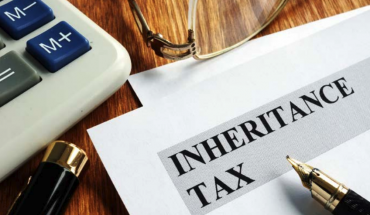The changing UK tax landscape
By Lynette Chaudhary, Tax & Research Director, STM Fiscalis
Many non-UK residents own UK property. For Gibraltar residents this is often a result of retaining a previous UK residence or having built up a property portfolio in the UK. The law in this area has changed significantly in recent years and compounded with the radical shifts in property markets due to Covid-19 and government measures introduced to tackle this, keeping up with the changing UK tax landscape can be challenging for owners.
The following outlines the UK tax obligations if a Gibraltar resident individual or trustee disposes of UK property or UK land. It also highlights the temporary increase (due to Covid-19) of the Stamp Duty Land Tax threshold which may benefit purchasers until March 2021.
UK Capital Gains Tax position from April 2020
The changes since April 2020 require non-UK resident individuals and trustees to:
- File a Capital Gains Tax (CGT) on UK Property Account online, within 30 days of completion of a direct or indirect sale of a UK property/land, and
- Pay any CGT to HMRC in that timeframe.
For non-UK residents, there is no exemption from filing this CGT Account even if no capital gain (and hence no tax) arises on the disposal of the property. This position is different for UK residents. Furthermore, there are penalties for late filing.
HMRC guidance indicates that UK Government Gateway login details are required to file this Account. However, many non-UK residents may not be able to set up a Government Gateway account, for example, if they do not have a UK National Insurance number or UK Unique Tax Reference. In such cases, it is possible to access this CGT reporting service using an alternative process.
It is worth noting however that there is a specific CGT exemption for gains made by certain overseas pension schemes (e.g. QROPS/QNUPS). This exemption results in any gains made on the disposal of UK property/land by such schemes not being liable to UK tax. There are also special rules for qualifying Collective Investment Vehicles.
Annual UK Self-Assessment also required
A non-UK resident individual or trustee may feel quite satisfied that they’ve “ticked their UK tax compliance box” after submitting the required CGT Account and paying any CGT, within the required timeframe. However, they also need to file their annual UK Self-Assessment Tax Return in which details of the property disposal and CGT Account must be included.
Currently non-UK residents cannot utilise HMRC’s Self-Assessment online service, although many mistakenly think that they can, by erroneously filing with HMRC as a UK resident (which can lead to further issues)!
Non-UK residents must either complete a paper Self-Assessment Tax Return and send it to HMRC by post, or use commercial UK tax software that supports their non-UK resident filing position, often by engaging the services of a suitable tax adviser.
Separately, since April 2019, non-UK resident companies are required to register for UK Corporation Tax within three months of a disposal of UK property/land.
Gibraltar/UK Double Taxation Agreement
For Gibraltar residents, whilst there is no CGT payable in Gibraltar on the UK disposal, liability to UK tax remains. The Double Taxation Agreement (DTA) in force between Gibraltar and the UK continues to generally give the UK the right to tax such capital gains on UK property/land disposals, unless less than 50% of the gain relates to the UK property.
Stamp Duty Land Tax temporary “holiday”
In an effort to boost the UK property market due to the effects of Covid-19, the UK Government introduced a temporary increase of the Stamp Duty Land Tax (SDLT) threshold for residential properties to £500,000, which applies from July 2020 to March 2021. As a result, purchasers can potentially save up to £15,000 in SDLT. This temporary increase of the threshold applies to UK and non-UK resident investors alike.
However, where purchasers are acquiring an additional residential property, a 3% SDLT charge continues to apply. Furthermore, draft UK legislation published in July 2020 introduces a new 2% SDLT surcharge from April 2021 for non-UK resident purchasers of residential property. This brings the concept of tax residence into SDLT, which until now has been levied only on the basis of where the property is located.
The need to review
Many non-UK residents are unaware of these changes in the UK tax landscape, and some may still believe that CGT does not apply to them because they are non-UK resident. This ceased to be the case from April 2015 for UK residential property and April 2019 for UK commercial property. To exacerbate this, many advisers in the UK are experienced in dealing with the tax regime for UK residents only and are not fully aware of the changes that apply to non-UK residents. The 30 day filing requirement also means that owners must act quickly on completion in order to avoid costly penalties.





